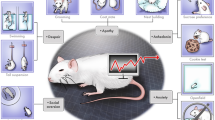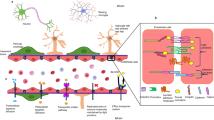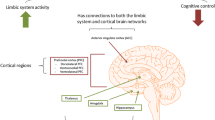Abstract
Introduction
Chaigui granules are a novel manufactured traditional Chinese antidepressant medicine, which is originated from the ancient classical prescription of Xiaoyaosan. It ameliorated depression-like behavior and concomitant symptoms in animal models. But its antidepressant mechanism is still unclear. Therefore, network pharmacology and molecular biology were used to explore underlying antidepressant mechanism in this study.
Methods
Firstly, network pharmacology was used to screen main active ingredients and potential targets in the treatment of depression with Chaigui granules, and to perform pathway enrichment analysis. Secondly, chronic and unpredictable mild stress-induced depression model rats were used, and behavioral tests were used to evaluate the antidepressant effect of Chaigui granules. Finally, the core targets and key pathways predicted by network pharmacology were validated by qRT-PCR and Western blot to determine the relevant gene and protein expression levels in rat hippocampus.
Results
The results of network pharmacology indicated that the PI3K/Akt signaling pathway may play a key role in antidepressant of Chaigui granules. The results of animal experiments showed that Chaigui granules significantly modulated behavioral indicators. Subsequently, the upregulation of relative mRNA levels of mTOR, Akt and PI3K and downregulation of GSK-3β and FoxO3a were observed in rat hippocampus by molecular biology diagnosis. In addition, the decreased expression of Akt and mTOR in CUMS rats hippocampus was significantly reversed, and the expression levels of GSK-3β and FoxO3a were upregulated.
Conclusions
Based on the results of network pharmacology and animal experiment validation, Chaigui granules may reverse CUMS-induced depression-like behavior in rats through PI3K/Akt/mTOR signaling pathway.








Similar content being viewed by others
Data Availability
Data will be made available on reasonable request.
References
Chen JL, Zheng XF, Gao XX, Zhou YZ, Guo XQ, Tian JS, Qin XM (2014) Anti-depressant effect and mechanism of supercritical CO2 extract from compound Chaigui Fang. China J Chin Mater Med 39:2744–2750. https://doi.org/10.4268/cjcmm20141429
Chen JL, Gao Y, Qin XM, Tian JS (2016) Anti-depression mechanism of supercritical CO2 extract from Compound Chaigui Fang based on network pharmacology. Acta Pharm Sin 51:388–395. https://doi.org/10.16438/j.0513-4870.2015-0564
Chen XQ, Chen SJ, Liang WN, Wang M, Li CF, Wang SS, Dong SQ, Yi LT, Li CD (2018) Saikosaponin A attenuates perimenopausal depression-like symptoms by chronic unpredictable mild stress. Neurosci Lett 662:283–289. https://doi.org/10.1016/j.neulet.2017.09.046
Dodd S, Mitchell PB, Bauer M, Yatham L, Young AH, Kennedy SH, Williams L, Suppes T, Lopez Jaramillo C, Trivedi MH, Fava M, Rush AJ, McIntyre RS, Thase ME, Lam RW, Severus E, Kasper S, Berk M (2018) Monitoring for antidepressant-associated adverse events in the treatment of patients with major depressive disorder: an international consensus statement. World J Biol Psychiatry 19:330–348. https://doi.org/10.1080/15622975.2017.1379609
Draghici S, Khatri P, Tarca AL, Amin K, Done A, Voichita C, Georgescu C, Romero R (2007) A systems biology approach for pathway level analysis. Genome Res 17:1537–1545. https://doi.org/10.1101/glr.6202607
Duda P, Hajka D, Wójcicka O, Rakus D, Gizak A (2020) GSK-3β: a Master player in depressive disorder pathogenesis and treatment responsiveness. Cells 9. https://doi.org/10.3390/cells9030727
Gao XX, Li Y, Meng MD, Wang P, Feng Y, Jia JP, Qin XM (2020) Exploration of chemical composition and absorption characteristics of Chaigui granules based on UHPLC-Q-orbitrap-MS/MS. J Pharm Biomed Anal 187:113293. https://doi.org/10.1016/j.jpba.2020.113293
Guo LT, Wang SQ, Su J, Xu LX, Ji ZY, Zhang RY, Zhao QW, Ma ZQ, Deng XY, Ma SP (2019) Baicalin ameliorates neuroinflammation-induced depressive-like behavior through inhibition of toll-like receptor 4 expression via the PI3K/AKT/FoxO1 pathway. J Neuroinflammation 16:95. https://doi.org/10.1186/s12974-019-1474-8
Hellstern M, Ma J, Yue K, Shojaie A (2021) Netgsa: fast computation and interactive visualization for topology-based pathway enrichment analysis. PLoS Comput Biol 17:e1008979. https://doi.org/10.1371/journal.pcbi.1008979
Hou ZH, Jiang WH, Yin YY, Zhang ZJ, Yuan YG (2016) The current Situation on Major Depressive Disorder in China: Research on mechanisms and clinical practice. Neurosci Bull 32:389–397. https://doi.org/10.1007/s12264-016-0037-6
Huang DH, Wang LW, Wu YF, Qin XM, Du GH, Zhou YZ (2022) Metabolomics based on peripheral blood mononuclear cells to dissect the mechanisms of Chaigui Granules for Treating Depression. ACS Omega 7:8466–8482. https://doi.org/10.1021/acsomega.1c06046
Hughes S, Lacasse J, Fuller RR, Spaulding-Givens J (2017) Adverse effects and treatment satisfaction among online users of four antidepressants. Psychiatry Res 255:78–86. https://doi.org/10.1016/j.psychres.2017.05.021
Ihnatova I, Budinska E (2015) ToPASeq: an R package for topology-based pathway analysis of microarray and RNA-Seq data. BMC Bioinf 16:350. https://doi.org/10.1186/s12859-015-0763-1
Lee KW, Shin D (2019) Association of Night Eating with Depression and depressive symptoms in Korean Women. Int J Env Res Pub He 16:23. https://doi.org/10.3390/ijerph16234831
Li F, Duan JL, Zhao MN, Huang SJ, Mu F, Su J, Liu KD, Pan Y, Lu XM, Li J, Wei PF, Xi MM, Wen AD (2019a) A network pharmacology approach to reveal the protective mechanism of Salvia miltiorrhiza-Dalbergia odorifera coupled-herbs on coronary Heart Disease. Sci Rep 9:19343. https://doi.org/10.1038/s41598-019-56050-5
Li HW, Wang P, Huang LQ, Li P, Zhang DL (2019b) Effects of regulating gut microbiota on the serotonin metabolism in the chronic unpredictable mild stress rat model. Neurogastroenterol Motil 31:e13677. https://doi.org/10.1111/nmo.13677
Lima Giacobbo B, Doorduin J, Klein HC, Dierckx R, Bromberg E, de Vries EFJ (2019) Brain-derived neurotrophic factor in Brain disorders: Focus on Neuroinflammation. Mol Neurobiol 56:3295–3312. https://doi.org/10.3892/ijmm.2018.3933
Liu H (2017) Investigation on the antidepressioneffect of Compound Chaigui Fang. Taiyuan, Shanxi university (Chinese)
Luo L, Li CQ, Du XX, Shi QL, Huang Q, Xu XY, Wang Q (2019) Effect of aerobic exercise on BDNF/proBDNF expression in the ischemic hippocampus and depression recovery of rats after Stroke. Behav Brain Res 362:323–331. https://doi.org/10.1016/j.bbr.2018.11.037
Mai L, Jope RS, Li XH (2002) BDNF-mediated signal transduction is modulated by GSK3beta and mood stabilizing agents. J Neurochem 82:75–83. https://doi.org/10.1046/j.1471-4159.2002.00939.x
Naseribafrouei A, Hestad K, Avershina E, Sekelja M, Linløkken A, Wilson R, Rudi K (2014) Correlation between the human fecal microbiota and depression. Neurogastroenterol Motil 26:1155–1162. https://doi.org/10.1111/nmo.12378
Rawson KS, Dixon D, Nowotny P, Ricci WM, Binder EF, Rodebaugh TL, Wendleton L, Doré P, Lenze EJ (2015) Association of functional polymorphisms from brain-derived neurotrophic factor and serotonin-related genes with depressive symptoms after a medical stressor in older adults. PLoS ONE 10:e0120685. https://doi.org/10.1371/journal.pone.0120685
Ren YL, Jia GC, Ma ZJ, Cui J, Zuo YM, Qin XM, Zhou YZ (2012) Research, Screening of antidepressant fractions from Xiaoyaosan. Lishizhen Med Mater Med Res 23:2689–2691. https://doi.org/10.3969/j.issn.1008-0805.2012.11.010
Ren Q, Wang ZZ, Chu SF, Xia CY, Chen NH (2018) Gap junction channels as potential targets for the treatment of major depressive disorder. Psychopharmacology 235:1–12. https://doi.org/10.1007/s00213-017-4782-7
Shao YZ, Wang K, Jiang ZY, Yu XW, An WR, Han Y, Wang ZL (2020) Comparative efficacy and acceptability of traditional Chinese medicine for adult major depression: a protocol for network meta-analysis. Medicine 99:e23199. https://doi.org/10.1097/MD.0000000000023199
Sun XP, Li XL, Pan RL, Xu YF, Wang Q, Song MJ (2018) Total saikosaponins of Bupleurum Yinchowense reduces depressive, anxiety-like behavior and increases synaptic proteins expression in chronic corticosterine-treated mice. BMC Complement Altern Med 18:117. https://doi.org/10.1186/s12906-018-2186-9
Wang WX, Hu XY, Zhao ZY, Liu P, Hu YC, Zhou JP, Zhou DF, Wang ZB, Guo DA, Guo HZ (2008) Antidepressant-like effects of liquiritin and isoliquiritin from Glycyrrhiza uralensis in the forced swimming test and tail suspension test in mice. Prog Neuro-Psychopharmacol Biol Psychiatry 32:1179–1184. https://doi.org/10.1016/j.pnpbp.2007.12.021
Wang YL, Wang JX, Hu XX, Chen L, Qiu ZK, Zhao N, Yu ZD, Sun SZ, Xu YY, Guo Y, Liu C, Zhang YZ, Li YF, Yu CX (2016) Antidepressant-like effects of albiflorin extracted from Radix paeoniae Alba. J Ethnopharmacol 179:9–15. https://doi.org/10.1016/j.jep.2015.12.029
Wang B, Lian YJ, Dong X, Peng W, Liu LL, Su WJ, Gong H, Zhang T, Jiang CL, Li JS, Wang YX (2018) Glycyrrhizic acid ameliorates the kynurenine pathway in association with its antidepressant effect. Behav Brain Res 353:250–257. https://doi.org/10.1016/j.bbr.2018.01.024
Wang X, Wang ZY, Zheng JH, Li S (2021) TCM network pharmacology: a new trend towards combining computational, experimental and clinical approaches. Chin J Nat Med 19:1–11. https://doi.org/10.1016/S1875-5364(21)60001-8
Willner P (1997) Validity, reliability and utility of the chronic mild stress model of depression: a 10-year review and evaluation. Psychopharmacology 134:319–329. https://doi.org/10.1007/s002130050456
Xiang H, Gao Y, Liu SB, Han YM, Qin XM, Tian JS (2019) Antidepressant mechanism of supercritical CO2 extract from compound Chaigui Precription regulating cAMP signaling pathway. Chin Tradit Herb Drugs 50:3368–3373. https://doi.org/10.7501/j.issn.0253-2670.2019.14.015
Xu LZ, Xu DF, Han Y, Liu LJ, Sun CY, Deng JH, Zhang RX, Yuan M, Zhang SZ, Li ZM, Xu Y, Li JS, Xie SH, Li SX, Zhang HY, Lu L (2017) BDNF-GSK-3β-β-Catenin pathway in the mPFC is involved in antidepressant-like effects of Morinda Officinalis oligosaccharides in rats. Int J Neuropsychopharmacol 20:83–93. https://doi.org/10.1093/ijnp/pyw088
XU T, Zhang X, Gao Y, Zhou YZ, Gao XX, Xing JS, Tian JS, Qin XM (2019) Study on antidepressant effect of Chaigui Granules on symptoms associated with depression. Chin Tradit Herb Drugs 50:3846–3851. https://doi.org/10.7501/j.issn.0253-2670.2019.16.016
Yang M, Chen JL, Xu LW, Ji G (2013) Navigating traditional Chinese medicine network pharmacology and computational tools. J Evidence-Based Complementary Altern Med 2013:731969. https://doi.org/10.1155/2013/731969
Yi LT, Luo L, Wu YJ, Liu BB, Liu XL, Geng D, Liu Q (2015) Circadian variations in behaviors, BDNF and cell proliferation in depressive mice. Metab Brain Dis 30:1495–1503. https://doi.org/10.1007/s11011-015-9710-0
Yuan XX, Juan ZD, Zhang R, Sun XT, Yan R, Yue F, Huang Y, Yu JC, Xia XH (2020) Clemastine Fumarate protects against myocardial ischemia Reperfusion Injury by activating the TLR4/PI3K/Akt signaling pathway. Front Pharmacol 11:28. https://doi.org/10.3389/fphar.2020.00028
Zhang H, Li K, Chen HS, Gao SQ, Xia ZX, Zhang JT, Wang F, Chen JG (2018) Dorsal raphe projection inhibits the excitatory inputs on lateral habenula and alleviates depressive behaviors in rats. Brain Struct Funct 223:2243–2258. https://doi.org/10.1007/s00429-018-1623-3
Zhao J, Niu CY, Wang JN, Yang HX, Du YZ, Wei LX, Li C (2018) The depressive-like behaviors of chronic unpredictable mild stress-treated mice, ameliorated by tibetan medicine Zuotai: involvement in the hypothalamic-pituitary-adrenal (HPA) axis pathway. Neuropsychiatr Dis Treat 14:129–141. https://doi.org/10.2147/NDT.S151107
Zhong Y, Zhu YT, He T, Li W, Li QJ, Miao Y (2019) Brain-derived neurotrophic factor inhibits hyperglycemia-induced apoptosis and downregulation of synaptic plasticity-related proteins in hippocampal neurons via the PI3K/Akt pathway. Int J Mol Med 43:294–304. https://doi.org/10.3892/ijmm.2018.3933
Zhou P, Xie WJ, Luo Y, Lu S, Dai ZR, Wang RY, Sun GB, Sun XB (2018) Protective effects of total saponins of Aralia elata (miq.) On endothelial cell Injury Induced by TNF-α via modulation of the PI3K/Akt and NF-κB signalling pathways. Int J Mol Sci 20. https://doi.org/10.3390/ijms20010036
Zhou XM, Liu CY, Liu YY, Ma QY, Zhao X, Jiang YM, Li XJ, Chen JX (2021) Xiaoyaosan alleviates hippocampal glutamate-Induced toxicity in the CUMS rats via NR2B and PI3K/Akt signaling pathway. Front Pharmacol 12:586788. https://doi.org/10.3389/fphar.2021.586788
Acknowledgements
The authors are indebted to Modern Research Center for Traditional Chinese Medicine of Shanxi University for providing convenience in the experimental process. The authors are grateful to the editors and reviewers for their suggestions, which have greatly improved this paper.
Funding
This work was financially supported by the National S&T Major Projects for “Major New Drugs Innovation and Development” (No. 2017ZX09301047); the National Natural Science Foundation of China (No. 82074147 and No. 82374153); the Science and Technology of Shanxi Province (No. 202103021224026 and No. 202102130501010); the Young Talents from Huxiang (No. 2020RC3082).
Author information
Authors and Affiliations
Contributions
Jun-sheng Tian, Zhen-ning Wu, Dan Wu, Chen Yang, Yao Gao, Dong-lan Yan conceived and performed the experiments. Jun-sheng Tian and Zhen-ning Wu wrote the paper. Zhen-ning Wu, Dan Wu, Chen Yang, and Yao Gao contributed significantly to the manuscript preparation. Jun-sheng Tian and Xue-mei Qin got the project and designed the study. Jun-sheng Tian revised the manuscript and approved the final manuscript submitted. All the authors have read, revised, and approved the final version of the manuscript.
Corresponding authors
Ethics declarations
Ethical approval
The whole animal experiment was strictly in accordance with NIH Guide for the Care and Use of Laboratory Animals, maximum efforts were made to minimize animal suffering and the number of animals necessary for the capture of reliable data. The used animal protocol listed in the manuscript had been reviewed and approved by the Committee of Scientific Research in Shanxi University (CSRSX).
Consent to publish
Not applicable.
Consent to participate
Not applicable.
Conflicts of interest
The authors declare that they have no known competing financial interests or personal relationships that could have appeared to influence the work reported in this paper.
Additional information
Publisher’s Note
Springer Nature remains neutral with regard to jurisdictional claims in published maps and institutional affiliations.
Electronic Supplementary Material
Below is the link to the electronic supplementary material.
Rights and permissions
Springer Nature or its licensor (e.g. a society or other partner) holds exclusive rights to this article under a publishing agreement with the author(s) or other rightsholder(s); author self-archiving of the accepted manuscript version of this article is solely governed by the terms of such publishing agreement and applicable law.
About this article
Cite this article
Tian, Js., Wu, Zn., Wu, D. et al. Combining network pharmacology and experimental verification to reveal the mechanism of Chaigui granules in the treatment of depression through PI3K/Akt/mTOR signaling pathways. Metab Brain Dis 38, 2849–2864 (2023). https://doi.org/10.1007/s11011-023-01312-5
Received:
Accepted:
Published:
Issue Date:
DOI: https://doi.org/10.1007/s11011-023-01312-5




